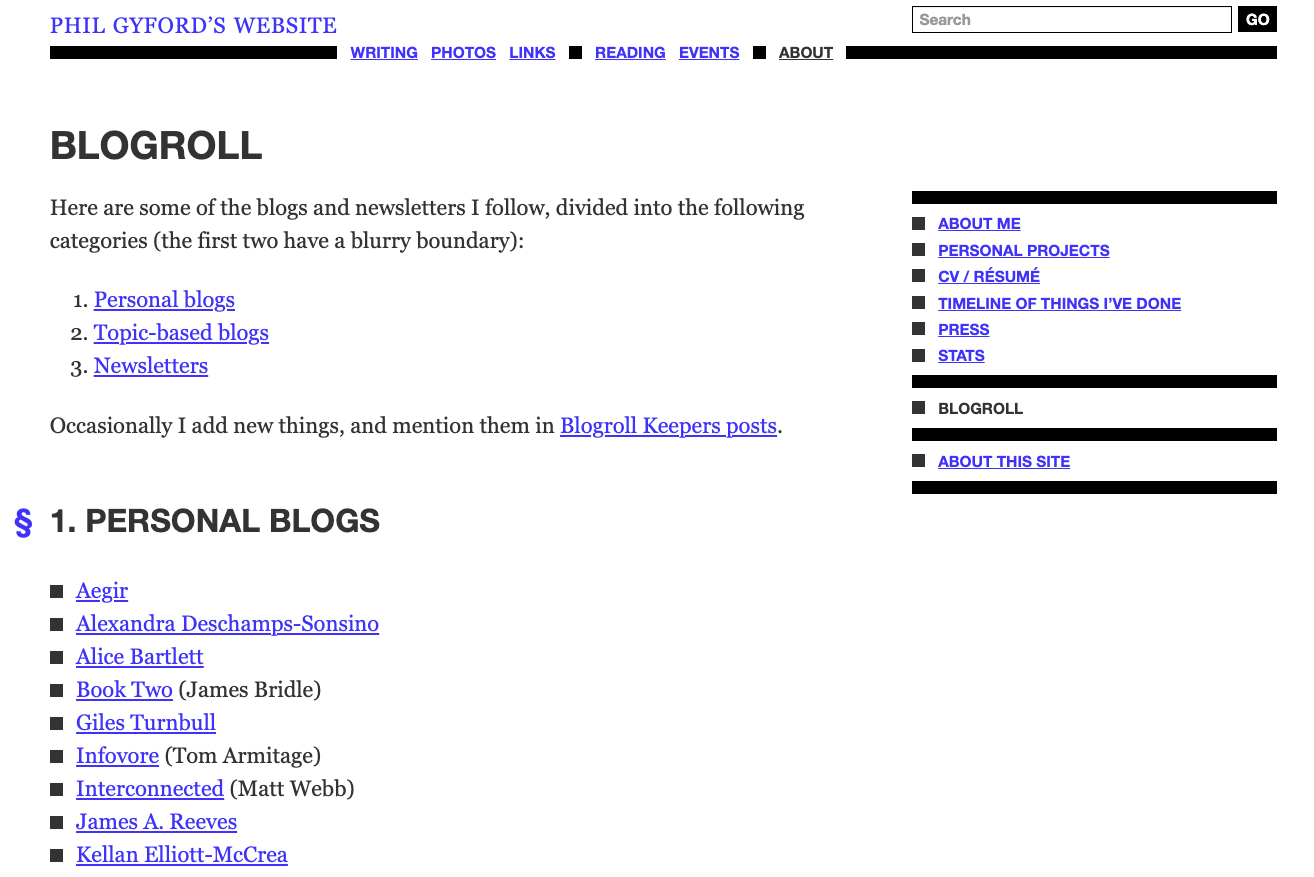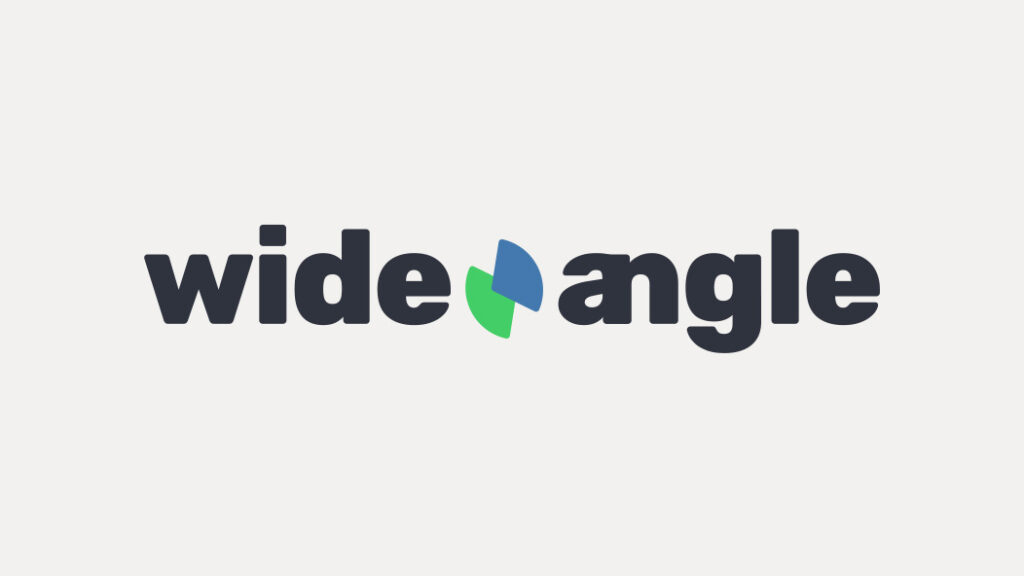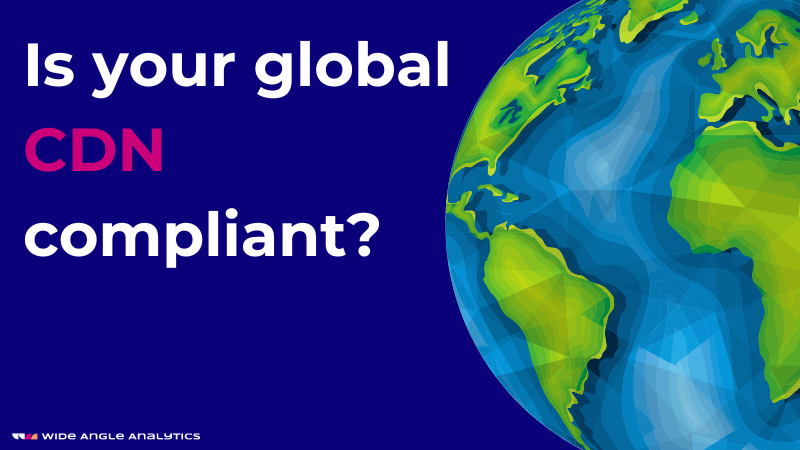Why should you even listen to what I have to say?
Hi, I’m Jarek. I founded a successful web analytics SaaS product and have been running it since 2021, so I know a thing or two about internet traffic. I’m also on the older side—I started my internet life when modems were making screeching sounds. You could say I’ve seen my fair share of things.
Recently, I have been talking with couple of people about the impact of AI on websites, web analytics, SEO, and the future of information discovery in general.
This was prompted by a recent, rather dramatic shift in traffic patterns.
Our customers, our partners, and we ourselves are observing a notable decline in organic search traffic from Google. Over the last six months, some websites in select industries have seen up to a 50% decrease in Google organic search traffic.
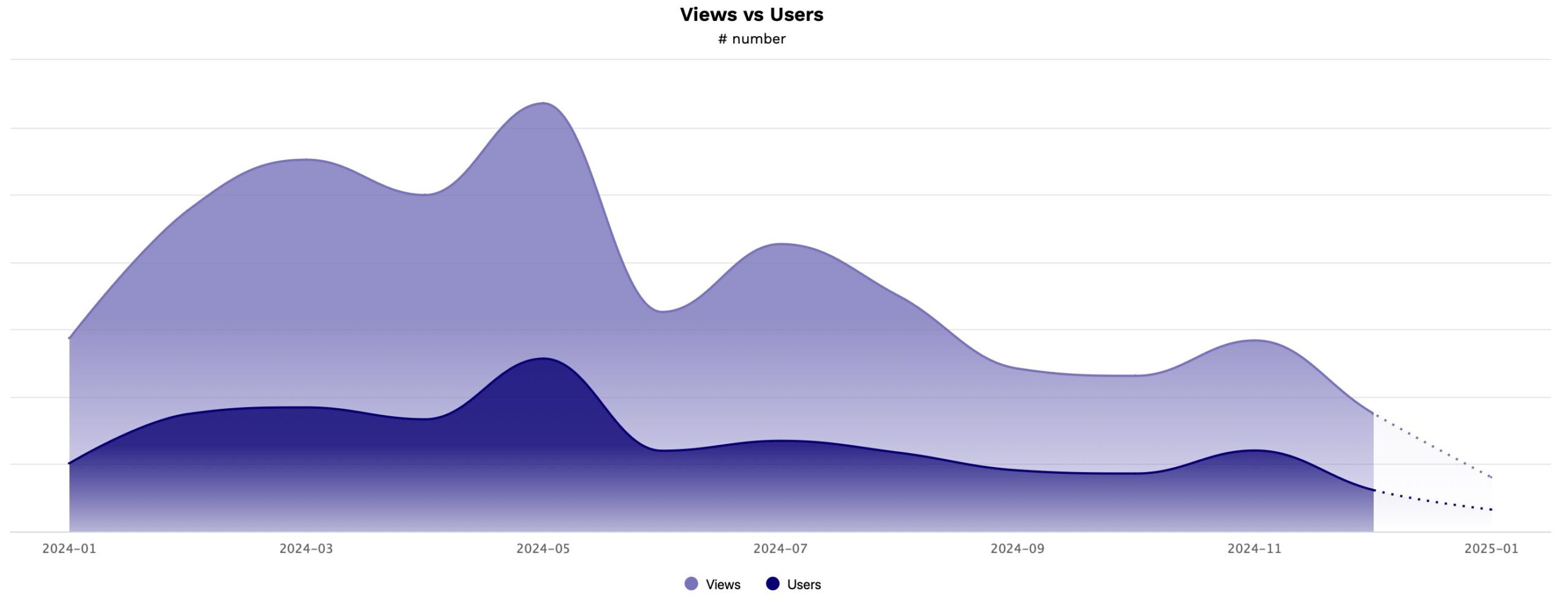
At the same time, those same websites are experiencing an increase in traffic originating from ChatGPT and Perplexity.AI.
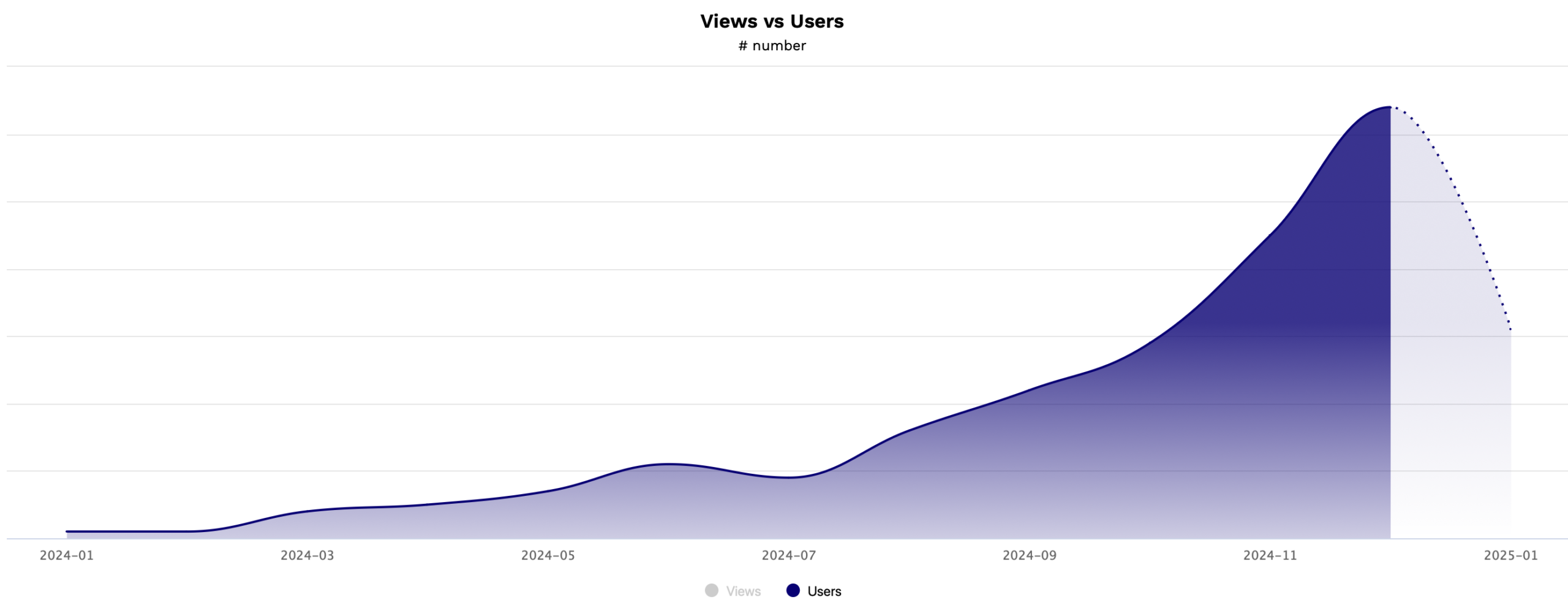
What’s also on the rise is a significant jump in bot and AI crawlers. However, this observation is far from new and dates back to 2022.
AI on the rise; Search on decline
It’s no mystery that more and more people perform their online searches and research in ChatGPT, Claude, or Microsoft Copilot windows. The days of clicking on a website link to get the best pancake recipe are long gone.
Warning: be sure to do a sanity check; otherwise, AI pancakes can make you sick.
So how does AI impact your traffic?
There are three patterns of AI chat and search usage:
- Website Summarisation
- AI Search As The End Game
- AI and GPT as an Internet Research Tool
Website Summarisation
One AI use case is to ask Copilot (in my opinion, one of the most convenient systems for that purpose) to simply summarize the website you’re currently browsing. Yes, you are on the website, and the page view did take place. However, since the visitor isn’t actually engaging with your blog article or other copy, they’ll read the summary and bounce.
Your CTA is worthless.
It will be hard to attract visitors to get excited about other linked articles and eventually convert them into paying customers.
The initial visit will be a hard bounce, and that’s it. Game over.
If your website relies on content marketing—such as a blog—to attract and convert new customers, this user behavior might completely upend your marketing efforts.
AI Search As The End Game
Whether it’s Perplexity.AI or Google Gemini Summary, AI search can kill your traffic before it even happens.
Take, for example, a pancake recipe. You’re likely to get a full response from the AI result with no incentive to visit the website the information was sourced from.
Likewise, when searching for the best Google Analytics alternative or the best smart TV, you might be served a summary that AI generated from content it scraped from the internet.
I hear you screaming:
GOOD! We are tired of sponsored listicles and SEO slop.
I hear you! I totally agree. We constantly fight against affiliate spam (and sometimes scams) produced by competitors that negatively affect our prospective customers.
However, one could argue that the opacity of AI summaries makes things even worse. Given that Large Language Models (LLMs) use probabilities (a gross simplification, of course) to determine their responses, the loudest—rather than the most genuine—voices on the internet could be lurking behind the offered response.
The point is, you don’t know.
A savvy consumer can, by looking at the top 10 Google results, identify which websites are copy-paste spam or paid-for listicles. Yes, we really can.
But AI summaries offer no such feedback. This makes them more dangerous.
Even more so because these summaries disincentivize users from clicking through and actually visiting your website.
AI and GPT as an Internet Research Tool
Lastly, the final pattern of AI usage assumes the AI-assisted chat is used as a research tool.
By engaging in conversation with the chatbot and asking questions, you’re offered information and answers. A good chatbot, like Google Gemini or Microsoft Copilot, will attach footnotes to selected parts of its response.
Those footnotes are critical. The user might (and let’s be honest, they should) click on the footnote, visit the source (aka your website), and verify the quality and accuracy of the information provided by the chatbot.
Unlike a summarization service, the user is warmed up to click. They expect the information to be there once they do, and they’ve made a conscious decision to actually visit your website.
This usage pattern is likely the closest to a traditional search experience. In the context of AI-driven, semi-organic search traffic, this kind of visitor is often the most valuable.
Tectonic Shift
Working on a web analytics platform, I have a front-row seat in observing this shift.
If, in the 2010s, you had heralded the death of Google as a dominant search engine, I—and frankly most people—would have laughed you out of the room.
Today, it appears this has already happened!
Predicting the Future of the Internet
This article is written in January 2025. Since it’s still early in the year, it’s customary to share one’s predictions on coming trends. I will therefore allow myself to do the same.
I would like to make a prediction for 2025 and onwards, say, for the next five years.
It will be interesting to look back at this post and discern whether I was right—or even close.
AI Will Solidify Dominance
Impact: moderate
AI will continue to capture minds and imaginations. Everyone, even your mother and grandpa, will be using AI chatbots. And these, as before, will keep making a dent in search-based traffic.
The grim prediction is that traditional content marketing will die—for better or worse.
While the impact on search-based marketing will likely be negative, assuming we can contain AI hallucinations, the overall effect on information access could be positive.
Will it be positive?
Humans are smart. Smarter than any AI. Even today, Reddit communities are poisoning AI recommendations for fun and personal benefit.
It’s not hard to imagine similar gamification by unsavory businesses and scammers becoming common practice in the near future.
Return of the Directories
Impact: moderate
To combat AI’s impact on search, customer and visitor acquisition, and inherent bias, we will see a resurgence of website directories.
Website and content creators, together with vendors, will submit information about their sites to curated directories.
The importance of product directories like Capterra, G2, and Uneed.best will grow for businesses looking to get in front of curious customers. Those directories will need to evolve to bring more value to users. The importance of moderated and verified reviews will increase.
The key to a positive impact is the implementation of fair reviews. It’s easy to imagine some directories churning out vast amounts of paid-for, low-quality product reviews or gamed listing placements.
Blogrolls for verticals and communities
Impact: positive
For content creation and non-commercial purposes, we’ll see a Blogrolls comeback.
If you’ve been on the internet long enough, those will sound familiar.
In the late 90s and early 2000s, like-minded creators built networks of blogs, allowing users interested in, say, amateur rocket building to find a bunch of related blogs in a single place or in a website’s sidebar.
The potential return of blogrolls is probably the shift I’m most excited about. I miss them dearly.
Explosion of Walled Gardens
Impact: negative
Lastly, the AI wars will push large publishers and content creators to raise walls around their internet properties. To avoid AI ravaging their user base, news outlets and content-heavy websites will turn to stringent, often paywall-based, access restrictions.
We’ll end up with many smaller internets within the larger internet. It’s not far from the current state of things. You can’t really browse content from Facebook or Instagram until you log in and surrender your personal data.
But the trend will only increase.
The deals—like the one between Reddit and Google over who has the right to user-generated or other types of content—will become commonplace.
It won’t be pretty.
The Future is Yet TBD
Whether AI’s impact will be net positive remains to be seen. It will—and frankly, already has—upended many of the practices content creators and marketers employ today.
The web will not die.
The web will change.
Jarek Rozanski is the Founder of Wide Angle Analytics. After a successful career in investment banking and financial services, he decided to explore the world of start-ups and eventually start his own. Privacy, one of our basic human rights, needs strong protection according to Jarek.

